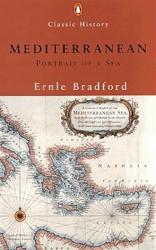At least not in Zaandam, where a peaceful demonstration opposite a petshop was broken up by the police, who also arrested several of the people involved. As syou can see on the video below it’s clear that these activists were no threat to anyone, didn’t do anything criminal, just
leafletting, but still the police went in heavyhanded:
You do not need a permit to leaflet, you don’t need permission to demonstrate and while some cities demand advance notification of demos, even the lack of such a notification does not make it illegal –the courts have rapped the police on the fingers when they have used this excuse to break up a demo. There was no reason for the police to interfere here, yet they did. Why is that?
Because unfortunately and despite the electoral succes of the Party for the Animals, animal rights activists have the tide against them. In the post-9/11 world, the ploice and security services are suspicious of any kind of activism other than organising bake sales for the local church, and the long tradition of direct action the more radical animal rights groups engage in makes them an easy target. One example was the fight against a science park, which included animal testing facilities, under construction in Venray, where animal rights activists demonstrated at the homes of the managers of the project development bureau that was building the park. This company withdrew and the animal testing facilities didn’t get build, but once again the animal rights movement was seen to engage in terrorism, or something that looked a lot like it. Again, the activists did nothing illegal, but for many people less sympathetic to the movement’s goals, it all looked a bit dodgy. At the very least what happened in Venray is an example of the hardening attitudes within the movement, the willingness to use more radical methods to achieve things that couldn’t be achieved through other methods.
But this radicalisation inevitably brings a backlash, which is what I think happened on Saturday. Because there’s a heightened awareness of the radical nature of at least some segments of the animal rights movement, some police officers are less willing to cut the movement some slack, either because they dislike it more or because they genuinely believe it’s a threat, even in this situation. Which ties in neatly with the discussion I refered to yesterday, in that it shows the dangers for any radical movement in abandoning mass mobilisation for more direct, more agressive forms of protest. Relying on violence, or the threat of violence can lose you legitamicy, can mobilise the forces of the state against you, can isolate you from those that should be your supporters and can hurt less radical members of your movement, as we saw last Saturday.
